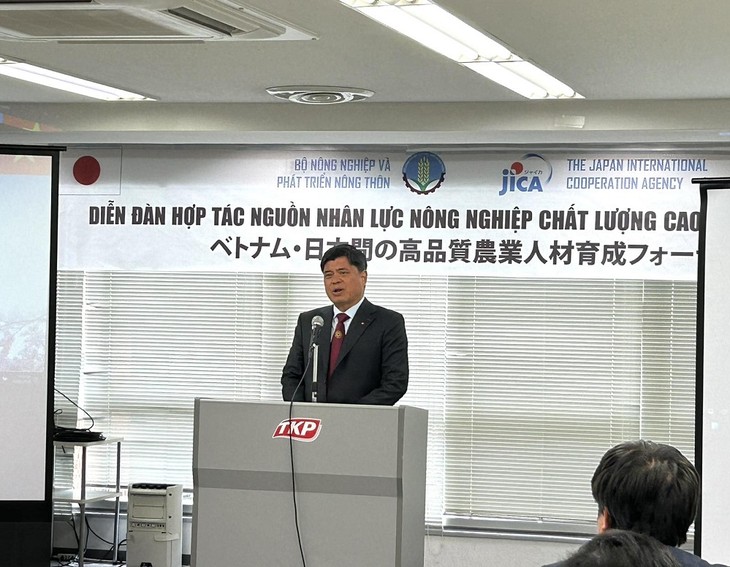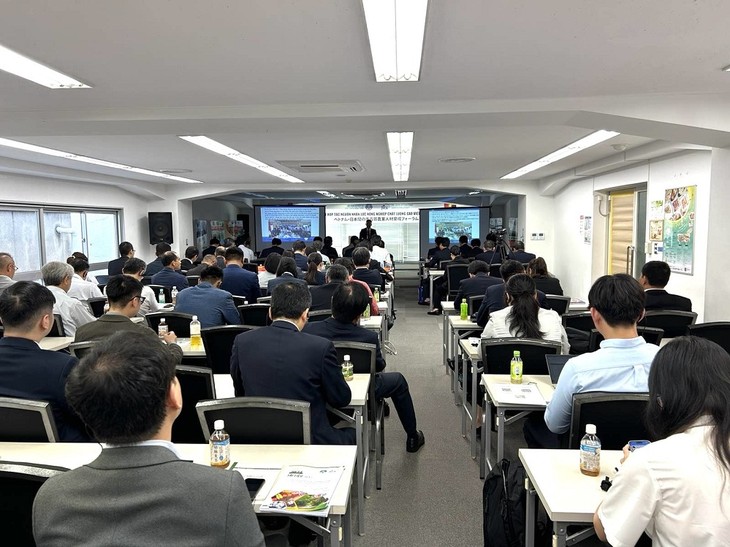(VOVWORLD) - Over 100 representatives from businesses, localities, and universities attended the Vietnam-Japan quality agricultural workforce cooperation forum, which was co-organized by the Vietnamese Ministry of Agriculture and Rural Development and the Japan International Cooperation Agency in Tokyo on Wednesday.
 Deputy Minister of Agriculture and Rural Development Tran Thanh Nam addresses the forum. (Photo: VOV Tokyo) Deputy Minister of Agriculture and Rural Development Tran Thanh Nam addresses the forum. (Photo: VOV Tokyo) |
Since the establishment of diplomatic ties, Japan has been a key partner in Vietnam's agricultural modernisation, providing assistance in irrigation systems, water-saving technologies, livestock and crop production techniques, and post-harvest processing. Japan has invested in the future of Vietnam's agriculture by training human resources.
Delegates heard presentations from representatives of JICA, the Water Conservation University, the Vietnam National University of Forestry, the Bac Giang Agriculture and Forestry University, the Vietnam National University of Agriculture, the Hiroshima University, representatives from Miyazaki prefecture, and Vietnamese and Japanese enterprises.
Deputy Minister of Agriculture and Rural Development Tran Thanh Nam said: “Our perspective in training high-quality human resources is to build a value chain in training activities, with three basic factors: universities and colleges under the Ministry of Agriculture and Rural Development, businesses, and production facilities and raw material areas. It’s a continuous relationship in which universities and colleges organize training, and businesses recruit and send employees to work at production facilities and raw material areas.”
 (Photo: VOV Tokyo) (Photo: VOV Tokyo) |
Japanese agencies, businesses, and localities said Vietnam's orientation and methods create opportunities for bilateral cooperation and help respond readily to challenges of food security, climate change, population aging, and shortage of high-quality human resources.